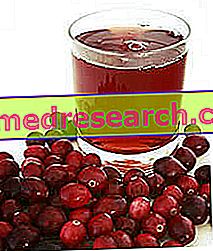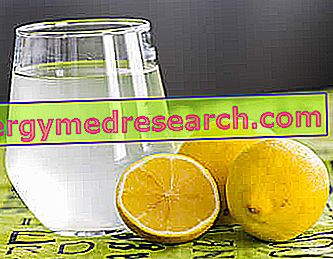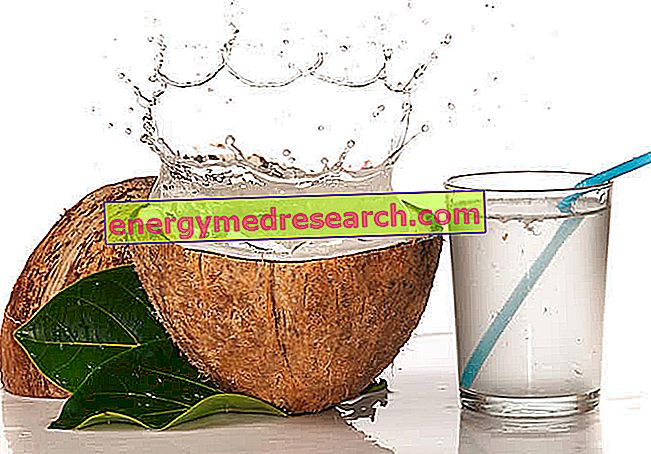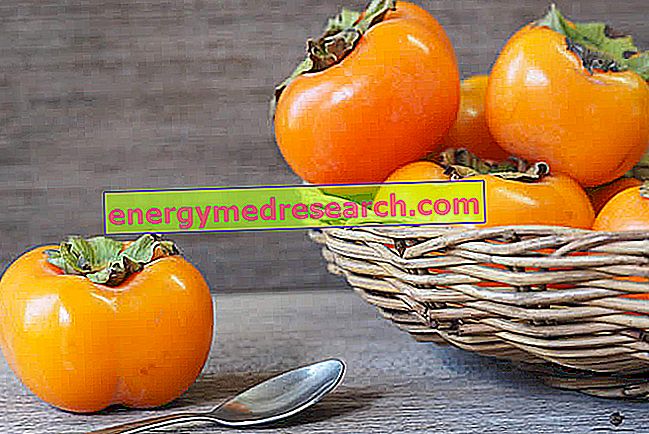What the Lactobacilli are and where they are Lactobacilli are a genus of bacteria with a rod-like, Gram-positive, facultative anaerobic or microaerophilic bacteria. Most of these microorganisms have the ability to ferment lactose and other sugars, producing acids, in particular - but not only - lactic acid
Category nutrition and health
Aphrodisiacs in history and aphrodisiac remedies See also: Natural aphrodisiacs and Aphrodisiac foods Aphrodisiacs are substances that stimulate and cause desire and sexual arousal. Their name derives from Aphrodite, Greek goddess of love, beauty, sexuality and lust. Since ancient times (Egyptians, Greeks and Romans) man has sought, selected and diffused substances with aphrodisiac properties in order to awaken their sexual appetites at the right time
Natural Aphrodisiacs In the general article on aphrodisiacs we talked about these substances with an emphasis on their "morality" and effectiveness. We have therefore come to the conclusion that, a bit 'as happens with homeopathic remedies, aphrodisiac foods and preparations work especially when those who consume them are convinced of their effectiveness (placebo effect)
Although the condition most commonly sought is the opposite one, namely urinary alkalinization, in some cases acidifying the urine can prove to be a useful behavior for maintaining the state of health. Urine and pH Urine is the product of renal excretion, through which metabolic or catabolic products dissolved in the blood stream are expelled from the body (harmful waste, especially urea, ketone bodies, creatinine, etc
Folic acid is a vitamin from group B that is essential for the synthesis of red blood cells, therefore, a dietary deficiency or a relative digestive-metabolic defect can cause anemia . Folic acid Folic acid, or rather folates, are water-soluble vitamins whose biologically active form is represented by tetrahydrofolic acid (THF)
What's this? Alkaline water is a particular type of water, characterized by a pH above 7.0. Most bottled waters have an alkaline pH, although there may be large differences in terms of fixed residue and the type of minerals they contain. The alkaline water par excellence is the ionized one, that is purified and processed thanks to an apparatus called an ionizer
Generality Coconut water is the juice present in the internal cavity (endosperm) of healthy, undamaged green coconuts. Coconuts reach the maximum water content (up to one liter) around 7 months of life. Coconut palms thrive in tropical environments and in coastal areas. A coconut tree can produce several hundred nuts each season
Alkalizing urine is a process of voluntary modification of the pH of the renal filtrate, and therefore of the blood; it is fundamental to try to alkalize the urine if metabolic acidosis is established, a condition unfavorable to organic homeostasis induced by the excessive presence of acid molecules
What is Alcoholism Alcoholism is the term commonly attributed to those who abuse alcoholic beverages. With reference to its enormous importance in the health field, alcoholism was inserted as early as 1980 among the abuse syndromes described in Diagnostic and Statistical Manual of Mental Disorders - III Edition (DSM-III); initially, this disorder was classified as "alcohol abuse and dependence" and only later was the word "alcohol syndrome and dependence (ethanol)"
Generality Factors that affect pressure Arterial pressure is a very important metabolic parameter; outside the normal range (around 70-80 mmHg minimum over a maximum 110-120 mmHg) it can in fact compromise the state of health. If the tendency to low blood pressure (in the paraphysiological field) is simply a risk factor for sudden fainting and consequent bruises or other related accidents, high blood pressure increases the chances of debilitating or fatal cardio- and cerebro-vascular events
What are What does astringent food mean? Astringent foods are, as the term suggests, foods with astringent properties. In chemistry, the term "astringent" indicates the ability to precipitate colloidal proteins in a solute. On the other hand, the same term is used in the nutritional field to indicate the properties of foods and beverages to stick in the mouth and / or to increase the consistency of the stools











